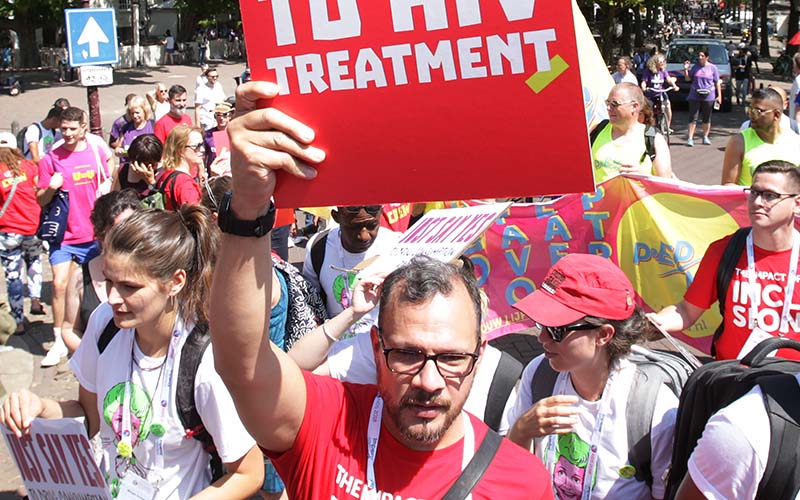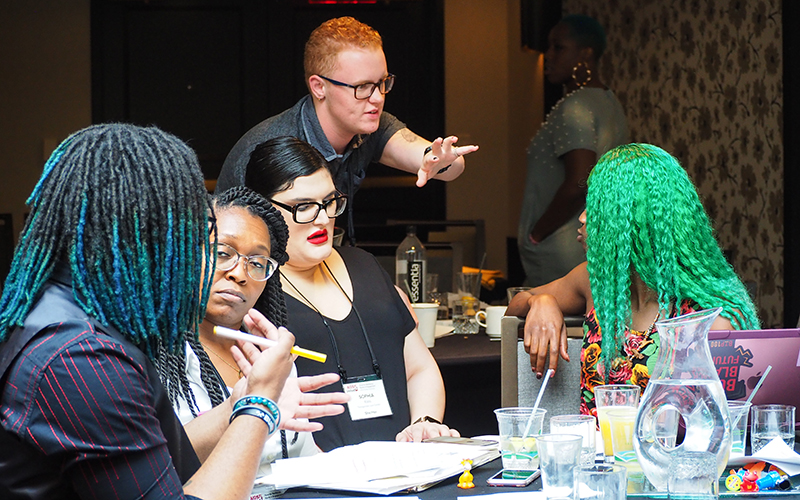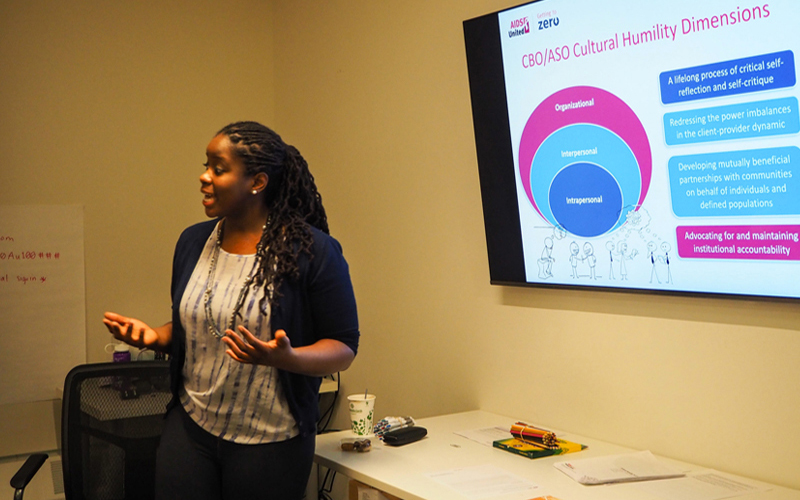Our initiatives
AIDS United is part of the evaluation and technical assistance provider for the Black Women First Initiative, in partnership with The University of Massachusetts at Lowell, Boston University Center for Innovation in Social Work & Health, and Impact Marketing + Communications. The initiative supports the design, implementation and evaluation of bundled evidence-informed interventions for Black women living with HIV.
We provide community-based organizations with the help and tools they need to effectively address the HIV epidemic in their communities.
Conexiones Positivas/Positive Connections supports community-designed and led approaches to leadership development of gay and bisexual men, other men who have sex with men and transgender Hispanic/Latinx men who are living with HIV.
The Hispanic/Latinx People Organizing Positively program provides grants to community-based organizations to help end HIV stigma and discrimination while building leadership among Hispanic/Latinx people living with HIV.
The Melanated Movement is an education and awareness campaign working to end the HIV epidemic and stigma and tackle misinformation through education, prevention and stories from Black cisgender and transgender women living with HIV.
We are dedicated to educating Black cis and trans women about prevention and risk and providing solutions for those in care — as well as giving a platform for stories by Black women living with the virus to help fight stigma and end the epidemic.
In partnership with the Centers for Disease Control and Prevention, the San Francisco Community Health Center-Chicago and Washington University in St. Louis, Missouri, AIDS United provides technical expertise to health departments and community organizations, helping these organizations to optimally plan, integrate, implement and sustain comprehensive HIV prevention programs and services.
PACT empowers communities disproportionately impacted by HIV through innovative approaches to distributing knowledge, health messaging and tools they need to make healthy decisions for themselves and those they love.
POP amplifies grassroots organizing by bolstering meaningful, community-led leadership development of people living with HIV to reduce HIV-related stigma, raise education and awareness among policymakers, and thus indirectly improve outcomes along the continuum of care.
We support innovative HIV programs to bolster the capacity of community-led efforts on HIV prevention, HIV treatment access, and public policy and advocacy in Puerto Rico.
The Racial Justice Index was launched in 2020 as part of the Public Policy Council’s longstanding commitment to dismantling white supremacy and systemic racism. It is a guide to help the HIV field move toward being fully responsive to racial justice and addressing racial disparities in HIV.
The Southern HIV Impact Fund focuses on the needs of individuals and communities affected by HIV in the South around three primary areas: prevention, care and support, and policy, advocacy and movement building.
The Southern HIV Impact Fund is supported by ViiV Healthcare’s Positive Action Grant Program. Head to southernfund.org for more about the work of this initiative.
The Transgender Leadership Initiative is a leadership development program supporting transgender, nonbinary, and gender nonconforming leaders of color who are emerging leaders in their communities. TLI aims to facilitate and improve the professional development and community services/programs of trans leaders.
Using Innovative Interventions Strategies to Improve Health Outcomes Among People With HIV, often shortened to 2iS, is a collaboration between The Fenway Institute and AIDS United. The project is funded by the Health Resources and Services Administration. The initiative’s goal is to improve the HIV care continuum outcomes of linkage-to-care, reengagement, retention in care, and viral suppression among people living with HIV. 2iS funds up to 20 Ryan White HIV/AIDS programs and other HIV service organizations nationally. These intervention strategies seek to improve HIV health outcomes for:
- People with substance use disorder.
- Lesbian, gay, bisexual, transgender and queer youth (13-24 years old).
- People who are or have been justice involved.
- People who use telehealth services.




